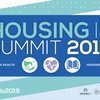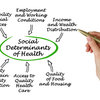Housing Is Summit 2019 - BREAKOUT: BUILDING INTERNAL PHA CAPACITY FOR CROSS-SECTOR PARTNERSHIPS

Video
May 24, 2019
Building Internal PHA Capacity for Cross-Sector Partnerships: How to creatively expand and enhance internal capacity to support cross-sector partnerships.



